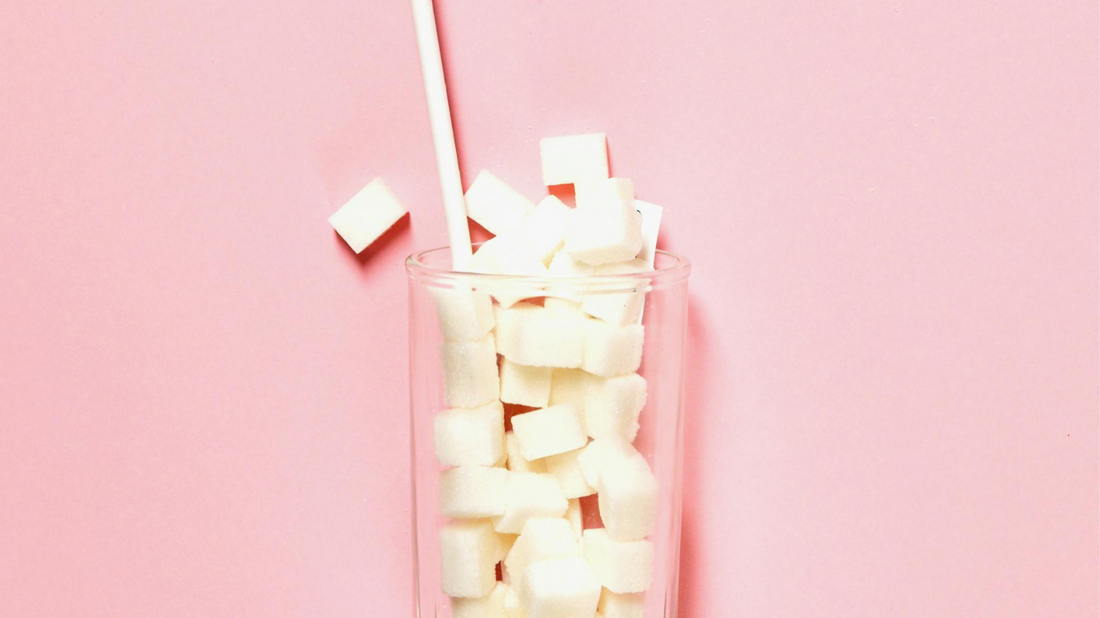You've found the perfect snack—a chocolate bar that's organic, fair-trade, and vegan! That's great! But wait a minute...it contains 30 grams of sugar. And you had two? Not so great. Sugar shock is all too real and it can sabotage your wellness goals. So how do we avoid this dessert trap? I'm glad you asked! Here are some of my favourite healthy-ish snacks that won't send your blood sugar into a spiral:
Almonds with dried fruitAvocado slices on Ryvita crackers with hummus or mustard
Roasted chickpeas (make these yourself!) with sunflower seeds and cilantro on top
Mixed nuts (without peanuts) dipped in dark chocolate
Chocolate.
Chocolate is a treat, but it's also high in sugar and calories. It can be addictive and mood-altering, which means you may find yourself craving chocolate more often than you would like to admit.
The average bar of dark chocolate has about 20 grams of sugar--that's almost half the daily recommended limit for women! And if you're not careful, those seemingly harmless morsels can add up fast: A 1-ounce square packs about 100 calories (and some as much as 120). If your goal is weight loss or management, chowing down on bars all day could hinder progress instead of helping it along.
Granola bars.
You may be surprised to learn that granola bars are often high in sugar. They're also high in fat, calories and sodium -- not the best combination for your wellness goals. Plus, many granola bars contain preservatives (another no-no).
If you're looking for a healthier option than most store-bought varieties, try making your own at home using whole oats and other healthy ingredients like nuts or seeds instead of added sugars and fats like peanut butter.
Juice.
Juice can be a source of vitamins and minerals. It's also an excellent way to get fibre, protein and carbohydrates into your diet. However, juice is high in sugar (even if you buy the "unsweetened" kind). If you're trying to lose weight or manage blood sugar levels, try diluting your favorite juice with water until it has less than 10 grams of sugar per serving--or just enjoy it as part of a healthy meal that includes whole foods like fruit along with lean proteins and vegetables.
Fruit drinks.
Fruit drinks are full of sugar and calories, but they don't offer the same level of nutrition as real fruits. Fruit juices contain natural sugars like fructose, which are absorbed quickly into your bloodstream. This can increase your risk for type 2 diabetes and other health problems.
Fruit juices also tend to be high in calories: A cup of orange juice contains about 120 calories and no fiber; a cup of apple juice has 110 calories and no fiber; while a glass of grapefruit juice packs 90 calories with zero grams of fiber!
Fruit juices often contain artificial sweeteners such as high-fructose corn syrup (HFCS) or sucralose (Splenda). While these additives may be safer than sugar alternatives like aspartame or saccharin when consumed at low levels on occasion--you should still limit their use because they're linked with weight gain over time.*
Ice cream.
Ice cream is a treat, not a staple. It's easy to eat too much ice cream because it's high in calories and sugar. In fact, one serving of vanilla ice cream contains about 200 calories and 16 grams of fat (more than half of which is saturated fat). That same serving also contains 12 teaspoons of sugar!
Ice cream can be part of an overall healthy diet if you keep these tips in mind:
Choose low-fat or fat-free varieties, which contain fewer calories and less fat than full-fat options.Eat just 1/2 cup at a time--the recommended serving size for adults is just two tablespoons!
Snacks high in sugar can lead to weight gain and other health issues, so choose wisely when you're hungry!
Sugar is a type of carbohydrate that can be found naturally in foods like fruits and vegetables, but it's also added to many processed foods. Sugar is a major source of calories in the American diet, making up about 13% of our daily intake (3).
In addition to contributing to weight gain, eating too much sugar may increase your risk for other health problems such as diabetes and heart disease (4). To help you avoid these issues, we've highlighted some common sources of added sugars so that you can make healthier choices when snacking on-the-go!
We know that in the beginning, it can be tricky to figure out what snacks are best for your health goals. But once you start paying attention to what goes into your body and how it feels after eating certain foods, it becomes easier over time. Remember that every body is different and reacts differently--so don't let others' opinions about what's good or bad affect your choices too much. Just do what feels right for you!

